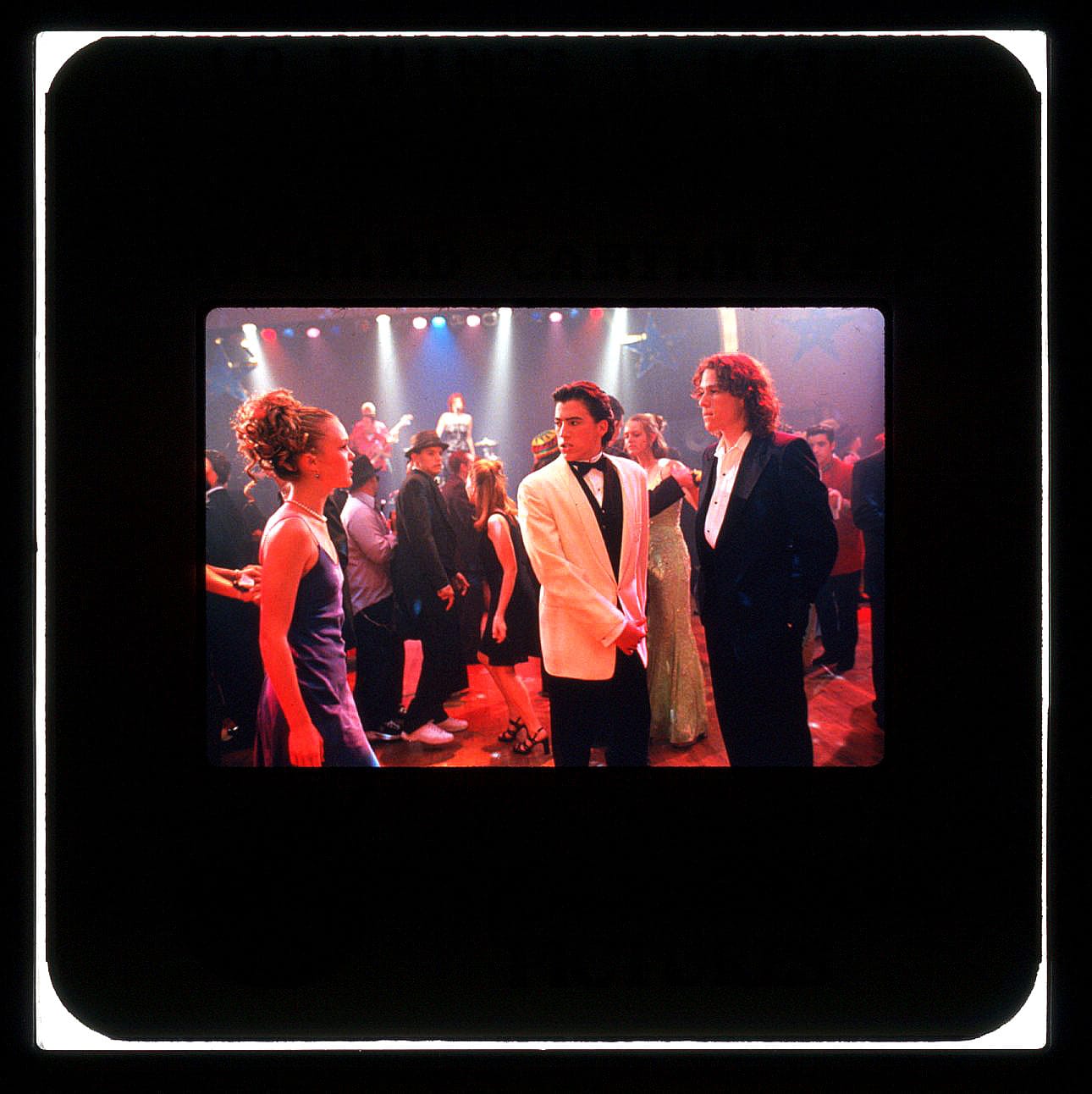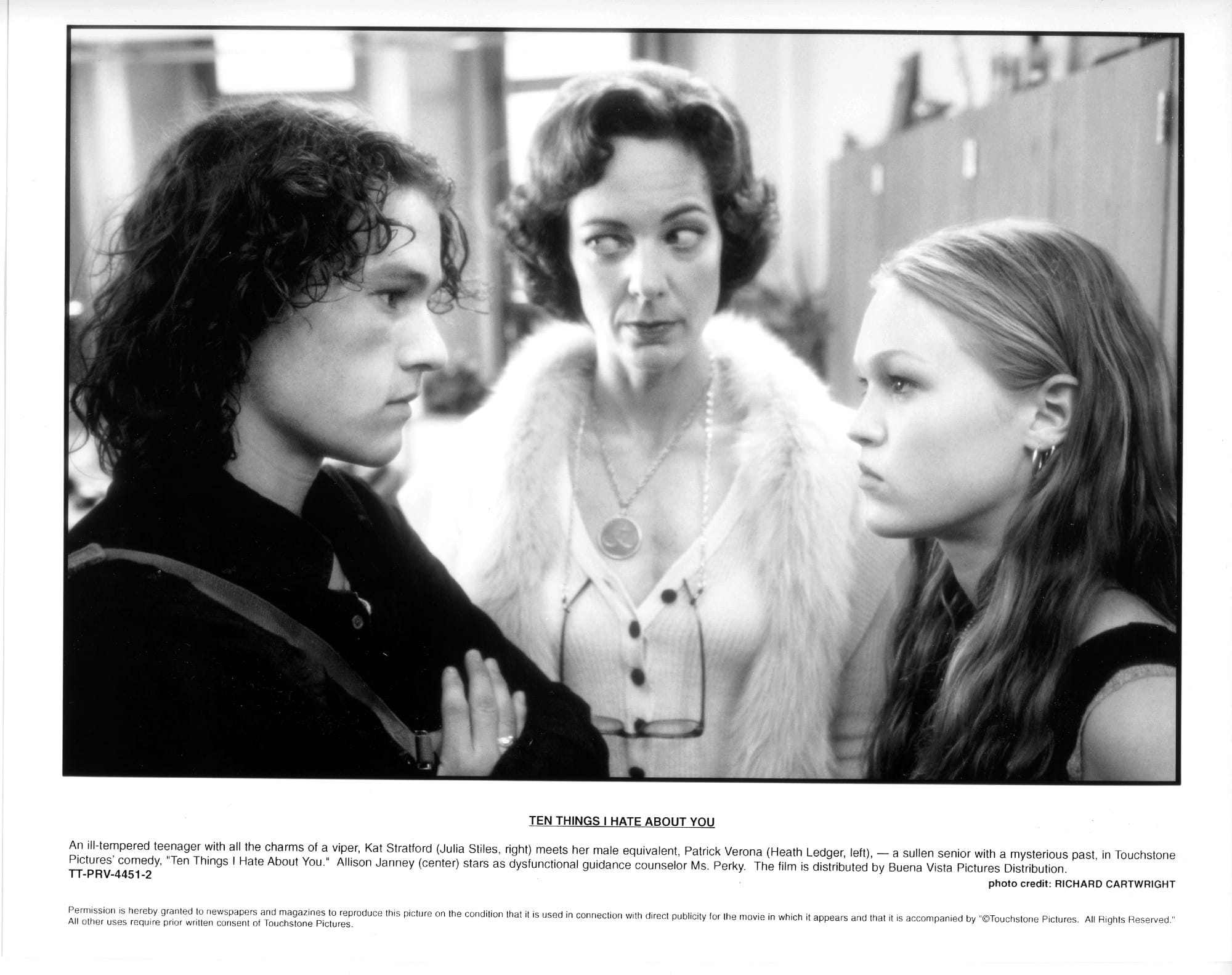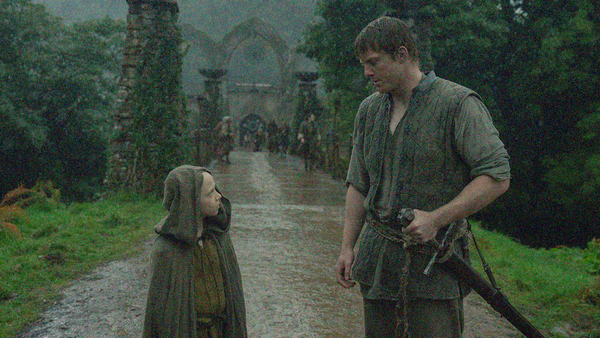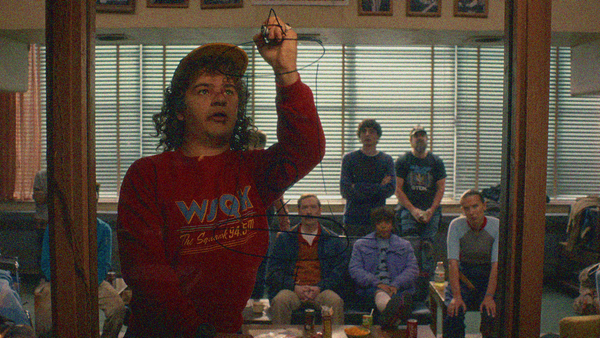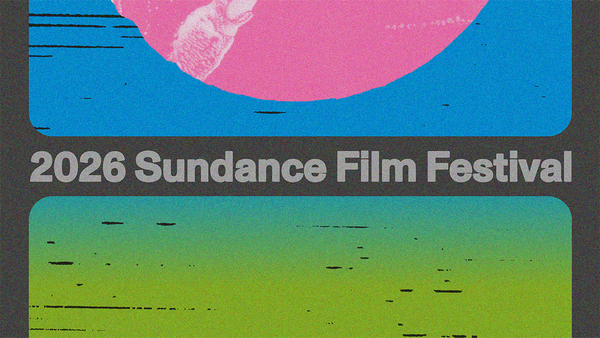Week Ending 10/3/25
Hockey's back

Hockey is back (Go, Sabres! or ... Try to be competitive!) and that means another season of Prime's "FACEOFF: Inside the NHL" taking us behind the scenes of last year's campaign.
I'm going to assume it will play more like a recap than exposé for me since I follow the league from start to finish anyway (that's how Season One mostly felt), but I'm hoping to be surprised since 2024-2025 was so newsworthy. Johnny Gaudreau's death. The 4 Nations tournament. Alex Ovechkin becoming the greatest goal scorer of all-time. Panthers v. Oilers 2.0. The drama wasn't lacking and Prime having a year under their belt could mean a creative evolution.
All six episodes hit the service today, so I probably have it playing in the background at work right now. Episode 1 focuses on 4 Nations (by way of the Tkachuk family). Episode 2 handles the Gaudreau family tragedy. Episode 3 looks at Sidney Crosby and Anze Kopitar's futures (the latter has announced he'll retire after the 2025-2026 season). Episode 4 highlights Maple Leafs' former President Brendan Shanahan (could be interesting considering how his season ended). Episode 5 features Hurricanes center Seth Jarvis and the whole Rantanen fiasco. And Episode 6 takes us to the Stanley Cup Final.
If the Sabres somehow make good on the defensive promise of this past offseason to get into the playoffs for the first time in fifteen years, maybe they'll rate for Season Three. I won't hold my breath, but you never know. The road begins for real on October 9 in Buffalo against the New York Rangers.

Coyotes
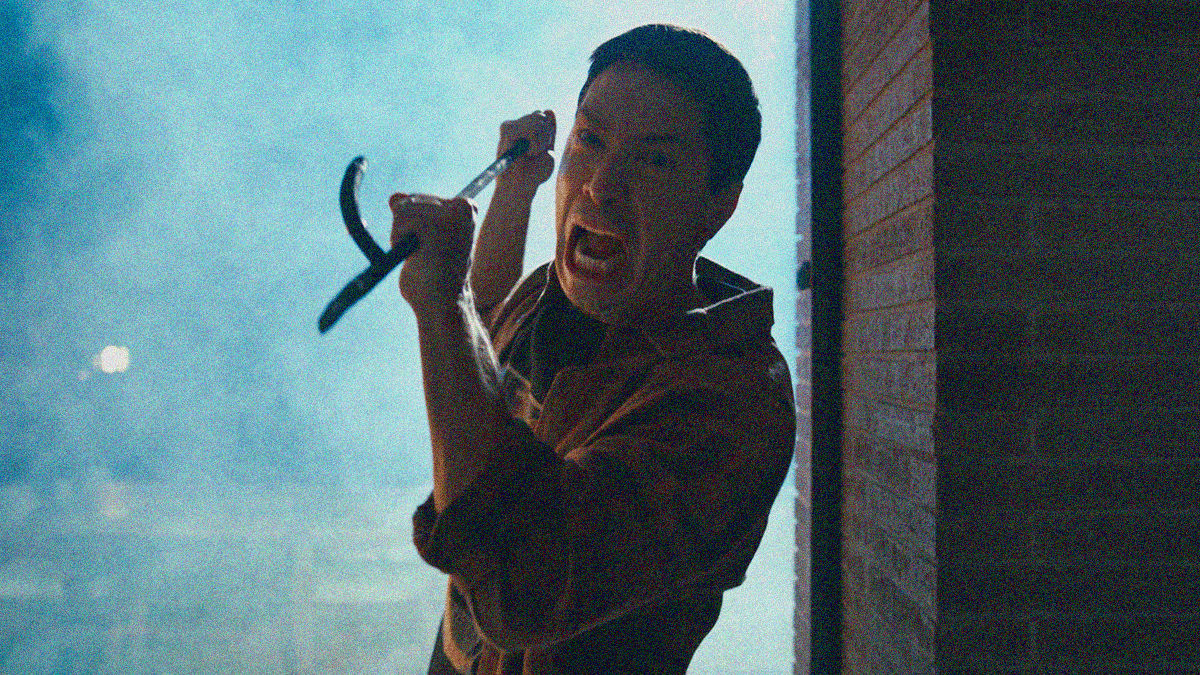
Scott (Justin Long) and Liv (Kate Bosworth) have rats. Moving from a one-bedroom apartment above a restaurant to their Hollywood Hills dream house did nothing to prevent vermin from infiltrating their lives. One could say humans are vermin too considering their impact on the environment and nature. As global warming pushes carbon levels past the point of no return and wildfires run rampant as a result, animals like coyotes must improvise to survive. Just as Scott and Liv seek to remove the rats, the coyotes look to eradicate them.
The opening credits metaphor is a stretch and director Colin Minihan and screenwriters Tad Daggerhart and Nick Simon know it. Don't therefore assume Coyotes delves any deeper into that comparison point. It simply needs the rats and Keir O'Donnell's overbearing exterminator Devon to serve the home invasion plot that ultimately forgets about both between the set-up and their place in the finale. No, this is just a straight horror comedy that threw darts at a list of potential monsters and settled on this particular canine.
From there it's finding a location to embolden an attack. Between the prevalent fires and wealthy residents' penchant for buying designer dogs, Hollywood proves a no-brainer. Throw self-absorbed influencer Kat (Katherine McNamara) to the wolves (literally) as she walks her dog in high heels during a cold open to set the stakes. Introduce Devon's elite-hating eccentric to thickly spread the "celebrities are rats" rhetoric. And reveal familial tensions born from Scott's desire to give his daughter Chloe (Mila Harris) everything except what she wants: her dad.
Cue some "man those coyotes are acting weird" obliviousness, ignite the carnage, and see if these insulated rich folk have what it takes to survive the apocalypse. Sure, Trip (Norbert Leo Butz) owns a gold-plated handgun, but does he have the expertise to make use of it when needed? Would he be sober enough to use that expertise if he did? How about his latest escort (Brittany Allen's Jules) spending more time spouting conspiracy theories online than worrying about her own wellbeing? Or Scott chasing Chloe's escaped dog into a coyote's path?
Will this ordeal be the thing to wake Scott up to the fact he's been neglecting those he loves? Maybe. If Liv opens his eyes for him since he's way too deep in the capitalist pursuit of material items to reach that epiphany on his own. Does it matter to the movie? No. He's going to try and save his family regardless of whether he just retreats into his work afterwards. The entire emotional roller coaster of this subplot is pretty much just wielded as the punch line to an admittedly effective walkie-talkie gag. Living trumps learning.
So, don't expect to receive more than gore and laughs when buying a ticket. I don't know who would expect more than that from a movie titled Coyotes that stars Justin Long, but COVID and MAGA have eaten enough brains to render common sense an uncommon attribute these days. This is about O'Donnell chewing the scenery, Butz acting a fool, and Allen perfecting the inherent humor of opportunism. It's Bosworth playing the hero whenever Scott fails in his attempts and Long ensuring those failures never cease to entertain.
There's a credit for puppetry, but the coyotes look heavily computerized when shown growling with blood-soaked mouths. Their attacks are mostly portrayed via quick cuts to violent results rather than the violence itself—presumably a mix of budgetary constraint and an honest assessment of verisimilitude. And that's okay since the coyotes ensure the cast moves and interacts with each other more than them. They exist to propel the plot and create gruesome cadavers. Wanting more is a fool's errand since Minihan's sole goal is to provide gory hijinks.
6/10
Good Boy
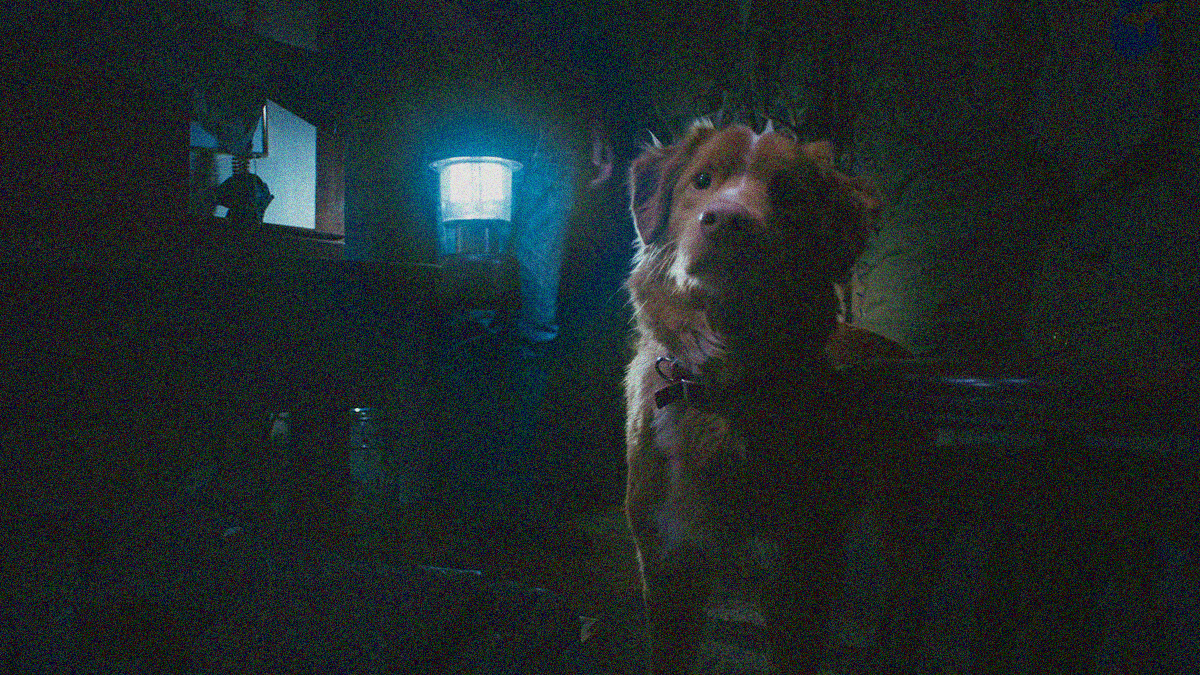
It starts at the end. Indy (the filmmaker's Nova Scotia Duck Tolling Retriever plays himself) is sitting on the couch with his owner (Shane Jensen's Todd) as a cellphone vibrates. No one answers the call, the dog starts looking around the room, and the person on the other end (Arielle Friedman's Vera) eventually arrives to find an unsettling scene manifested (or literally portrayed) as Todd sitting up so blood can drip from his face onto the phone's screen. She begins to call 911 as Indy struggles to comprehend what's occurring.
Director Ben Leonberg and co-writer Alex Cannon flashback a few years to follow this prologue with a montage of Todd and Indy's life together. Good Boy quickly proves an apt title as the retriever grows alongside his owner and adopts the sort of loyalty that makes him ecstatic upon watching Todd exit the hospital after a seemingly long stint away. Our presumption of cancer is soon confirmed once the two later get in a car and drive to Todd's late grandfather's (Larry Fessenden) abandoned house in the woods. Vera thinks the worst.
This is where the film's horror ambitions begin since this locale isn't your usual inheritance. It's where Todd and Vera's grandfather died and is known to have never held down a resident for very long (six generations of the siblings' relatives were buried young in a nearby cemetery). Todd's not worried, though. He just wants to endure the pain of his relapse alone. So, he ignores his sister ruminating about a dog's ability to sense what humans cannot. He refuses to believe Indy will somehow know when things turn sour and warn him to seek help.
What Todd experiences is therefore different from what we see on-screen due to our perspective always being from Indy's point of view. The film was born from a Stephen King inspired "what if?" question Leonberg posed to himself while watching Poltergeist in 2012: "What if the family dog was the only one who knew the house was haunted?" What if all those weird times every dog owner has witnessed where their pet barks at nothing or stares at an empty corner were evidence of the supernatural?
We see and hear what Indy does. A dog whining from within a closed basement. Shadowy figures seen in the distance out a rain-streaked car window. The gooey black hand of death reaching through shadows. We are also made privy to his nightmares of running through the house or the woods only to be taken or trapped. The illness overpowering his owner is both scary in its destructive force (often turning Todd angry and disinterested in Indy's company) as well as in how its psychological genre trappings give it human form.
This blurring of the line between reality and "dog sense" is a big part of Good Boy's success at creating many unforgettable images (the monster is effectively gruesome and never too far away to make an impromptu visit on-screen). Credit the excellent editing too as it allows for our anxiety to manifest without also freaking out the dog due to a consistent shift from what's happening around Indy to the camera becoming his eyes. And since death and Todd are interchangeable, we never quite know which grabs hold to pull him closer.
While Leonberg does a wonderful job transforming Indy into a movie star, you still can't avoid the lack of self-preservation. Yes, this is a huge piece of what the filmmaker is trying to do insofar as presenting a dog's undying loyalty to his person, but there's a definite emotional disconnect when the character we are supposed to worry about isn't worried about himself. As such, the stakes become nonexistent. We know how it ends and thus aren't really worried about Todd's fate, so we just want to tell Indy it'll all be okay.
It's an impressive feat, nonetheless. Shot across approximately four hundred days over three years to acquire as much coverage as possible when coaxing Indy to react as expected and lock the perfect take for every single second of its seventy-minute runtime, you truly see the hard work and production design in each frame. Losing the potency of its lead reacting to the terror, however, renders the jump scares more visual tableaus to absorb than kinetic moments to ignite an involuntarily lurch.
That fact ultimately kept me at arm's length since we're a voyeur appreciating Indy's journey rather than a target of its thrills. It feels less like a horror than an action-adventure. A Halloween Horror Nights attraction on rails instead of a visceral descent into the unknown. It must be considering the experiment's desire to maintain verisimilitude. An internal monologue would only render the whole too silly to overcome, but we do need that interiority. We need a character who's able to reconcile what they see with what it represents.
We're meant to fill that role, but I just couldn't find a way to do so. We can't be scared because Indy isn't scared. We can't hope its evil will be vanquished because Indy isn't trying to vanquish it (nor could he be considering what we are told it literally represents—despite contradictory allusions to it potentially having paranormal origins). It's an enjoyable film with a flawed premise since the dog's indifference to the supernatural prevents the house from being haunted. This is a dog trying to avoid Death's obstacles to give his owner one final hug.
6/10
The Ice Tower
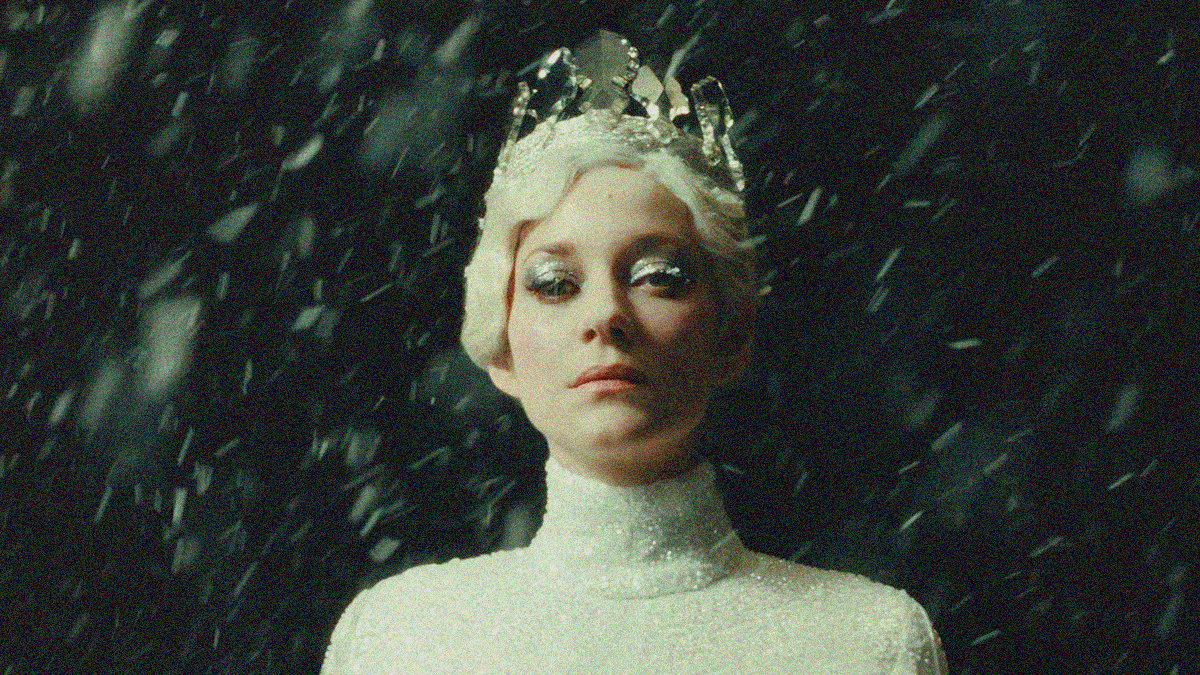
Jeanne (Clara Pacini) is desperate to escape her foster home after finding it more claustrophobic each passing day. If not for young Rose (Cassandre Louis Urbain), she might have left much sooner to travel to the ice rink she's been admiring from afar courtesy of a postcard image. So, she removes one of the beads from her bracelet to leave with her friend as a sort of protection talisman in her absence. Jeanne then treks across snowy fields, hitches a ride to the outskirts of town, and breaks into a nearby building for a good night's sleep.
It's here that the girl's adventure begins once her shelter is revealed as a film set on which an adaptation of Hans Christian Andersen's The Snow Queen is being produced. That story is Jeanne's favorite and one she's been reading to Rose at bedtime. To therefore see the titular character in all her beauty through a crack in the wall proves a profound experience. Here's a powerful woman with everything Jeanne has ever wanted: a realm to call her own. No sharing. No threat of losing control. A home where she makes the rules.
Therein lies the twist in Lucile Hadžihalilović's The Ice Tower insofar as why Andersen's tale is merely used as inspiration. Jeanne isn't taken by the Queen nor has she hunted her down to reclaim someone who has. She doesn't fear the Snow Queen. She aspires to become her. So, much like those beads (whose origins we later discover), the girl yanks a crystal off the Queen's dress as if possessing it might assist her quest. And who better to learn the Queen's ways than the actor embodying the role on-stage (Marion Cotillard's Cristina Van Der Berg)?
Hadžihalilović and her co-writers Geoff Cox and Alante Kavaite combine the roles of Kai and Gerda into one considering Jeanne finds herself trapped by the Queen's allure and inevitably her own key to breaking the spell. The magic mirror has also flipped in that the world Jeanne sees through her own longing is one that hides its ugliness beneath hopes and dreams. She sees a angel when gazing upon Cristina. A woman wanting for nothing and holding the reins of her own destiny. Not the diva turning everyone's lives into a nightmare.
As such, Jeanne can't see that Cristina's interest isn't about helping her as much as it is helping herself. By taking the girl under wing, Cristina is able to hijack the production. She dictates her desires to the director (Gaspar Noé's Dino). She throws her weight around to replace her co-star with Jeanne (through hostility if not actual sabotage). All these people are beholden to the project's success whereas Jeanne is beholden to her. So, Cristina takes advantage and ultimately absorbs this new acolyte into her emotional turmoil.
It's a fascinating journey that we must be skeptical about regardless of whether Jeanne feels the same. We know how to interpret the other cast and crew's fear of Cristina. We can guess what it is her "doctor" (August Diehl's Max) prescribes to get her back up from the latest bout of malaise. We see the depression and self-loathing that Jeanne cannot—especially not when Cristina starts to take an interest. She wants nothing more than to be locked in the Snow Queen's tower. To know someone sees her like her mother did ... even if it's not real.
I love how Hadžihalilović subverts the usual empathy found in narratives with two characters of different generations who endured similar tragedies in youth. Whereas most would let that shared experience bond these two as protector and protected, The Ice Tower understands that the would-be protector having never been protected themselves almost guarantees they don't know what it means to protect. Jeanne isn't therefore the only one living out a fantasy. Cristina is too. A much darker one considering she never could escape her past.
Does that mean Jeanne will? Not necessarily. The film isn't interested in such finite conclusions, though. It instead seeks to express how her journey isn't yet as hopeless as Cristina's. That the girl's desire for escape isn't simply about ending the past no matter the cost. She seeks to find a way that still embraces a future on the other side. Jeanne just needs a role model to tell her it will still be okay. So, in many ways, Cristina is the one hypnotized by the Snow Queen's spell of abject futility. She's lost to believe death is her only chance at release.
Pacini is quite good in her feature debut. The subtle smile whenever Cristina does something naughty to benefit their burgeoning relationship. The pain of filtering the world through her tragic backstory and desperation to cling to this potential way out. Cotillard is great as a troubled woman in suspended animation due to her own history so that moments of tenderness still can't hide her narcissistic need for control. And cinematographer Jonathan Ricquebourg is MVP. Much like Hadžihalilović's Earwig before it, The Ice Tower looks gorgeous.
7/10
Murderbot – Season One
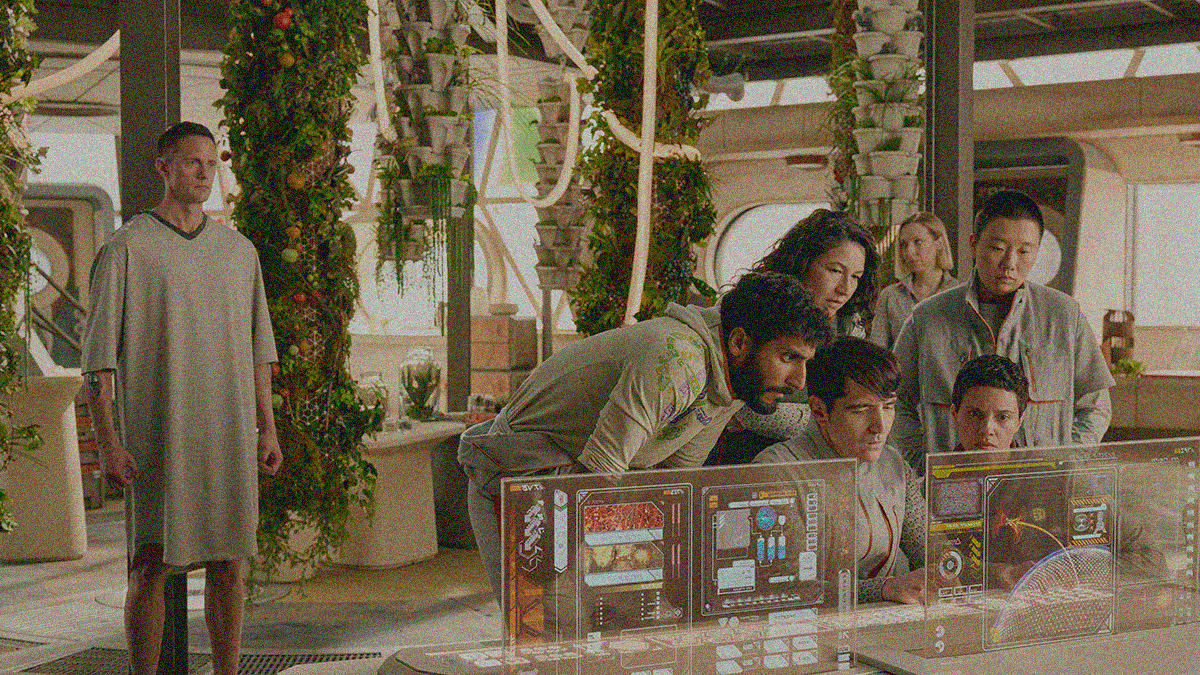
As someone known to go home once plans dissolve into an amorphous loop of "What should we do now?" as well as being averse to "hanging out" without an activity-based purpose, I can relate to Murderbot's (Alexander Skarsgård) desire to ignore the clients he's been tasked to protect and binge watch his favorite show instead. Doing it anyway is what it is to be human, though. Finding ways to reconcile your selfish drive for personal pleasure with the social necessity of compromising those ambitions for a greater, communal good. It's frustrating.
This is the beauty of Chris and Paul Weitz's adaptation (and, presumably, author Martha Wells' original intent) of All Systems Red into "Murderbot". By focusing on a hybrid synthetic/organic construct, we watch an "adult" cultivating those core tenets of humanity (compassion and altruism) that we absorbed in our youth. Being conditioned to push aside (if not fully ignore) our self-indulgent impulses. Figuring out how to soften decisive pragmatism into more thoughtful white lies of comfort. That whole empathy thing conservatives now label a weakness.
It's not something he seeks to learn. It's more a product of his experiences while working with a research team from the Preservation Alliance—a group of freehold planets outside the jurisdiction of the Corporation Rim. Dr. Mensah's (Noma Dumezweni) endeavor needs Corporation permission to travel to a colony in hopes of finding material that can help supply an influx of funds to the Alliance at a time when some have considered joining the Rim. They won't grant it unless they take a SecUnit and Murderbot is the cheapest option.
What they don't know is that Murderbot hacked the Governor Module serving as a failsafe to conscript it to its humans and ensure it can't harm them. What it doesn't know is that Mensah and her team are fully against the idea of constructs being treated like slaves and thus abhor the idea of the Governor Module. So, Murderbot does its best to play along and act as though it's still under their control and they (mostly, considering David Dastmalchian's Dr. Gurathin, an augmented human, knows something is amiss) are too naive to notice.
The game is two-fold. Murderbot, despite its irritation from its humans' penchant for risking their lives every chance they get, finds itself spontaneously caring about their wellbeing (helped by the fact it needs them to eventually leave this particular planet) instead of simply letting them die. And they (Mensah, Gurathin, Sabrina Wu's Pin-Lee, Tattiawna Jones' Arada, Tamara Podemski's Bharadwaj, and Akshay Khanna's Ratthi) must learn to put their money where their mouths are upon discovering they wield absolutely no control over it.
"Murderbot" therefore progresses as a series of high-stakes scenarios wherein trust must be built by necessity insofar as allowing actions to trump fear. Mensah and company should not even consider the idea that Murderbot would ever put their needs above its survival (Gurathin is quick to constantly remind them of this), yet it seems to do exactly that every step of the way. You can write it off as mutually assured survival or call it latent muscle memory from when it was programmed to do so, but maybe it has just begun to grasp the value of life.
Sure, the truth is probably closer to Murderbot feeling like they are its pets (ironic considering Mensah must emphatically remind her crew that it isn't their pet), but that doesn't mean it's not also thawing to the prospect of affection. The show it loves to binge ("Sanctuary Moon" stars a fun cast of known commodities in recurring cameos) does have a major plot line wherein a synthetic falls in love with a human, after all. Just like people watch foreign films to better learn a new language, Murderbot watches its serial slop to learn "human".
Don't call it slop in its presence, though. Murderbot considers "Sanctuary Moon" prestige television and has guns in its arms ... so disparage it at your own peril. Not that it would ever harm you for that opinion. It will just argue against it with the same fervor as a fanboy stanning their fave on social media. That's the type of relatable and zeitgeisty humor at the back of the action and mystery (someone or something is trying to stop Mensah and the others from leaving the planet alive). Murderbot's sass vs. Preservation Alliance's kumbaya nature vs. a cruel world.
It's all very entertaining as a result considering we're always privy to Murderbot's uncensored internal monologue (Wells' series is written as its personal diaries) in contrast to what it ultimately says aloud. So, you have the contrast of its true thoughts and its attempts to deceive its humans by saying something else as well as the dynamic of it believing those attempts are foolproof when reality shows they often earn the exact opposite reaction. The same can be said for the humans when their desire to humanize Murderbot inevitably makes them look silly.
That sense of honest fallibility is also what lends the show so much heart. Because both sides mean well regardless of their execution. They each care in their own way and hope to survive this whole ordeal to reckon with who they are to each other under much safer circumstances. As it is in this moment, however, they don't have much choice but to give into trust. Mensah is Murderbot's ride home and its security protocols and combat programming are the only things keeping her team alive long enough to provide it.
To make these "friends of convenience" transform into "friends with purpose" ultimately comes down to the performances allowing each character evolution to land. Plot only goes so far. We must appreciate the humans' fear and Murderbot's confusion. We must understand the internal switch to see the external switch as more than just a contract being honored. Skarsgård is a huge piece of this as Murderbot's free will opens room for vulnerability and emotions. Dumezweni and Podemski are equally great at providing a mirror.
The others are too. Wu, Jones, and Khanna are the archetypical result of having too much empathy and Dastmalchian is a crucial counter to Murderbot as a human who's adapted the other direction by using synthetic augmentation to foster mistrust. Add a bunch of supporting roles that span candidly off-putting (Anna Konkle) to enigmatic (Amanda Brugel) and there's a mix of everything a good sci-fi classic and sci-fi spoof can offer. "Murderbot" finds that sweet spot in-between to deliver as many laughs as thrills.
8/10
She Loved Blossoms More
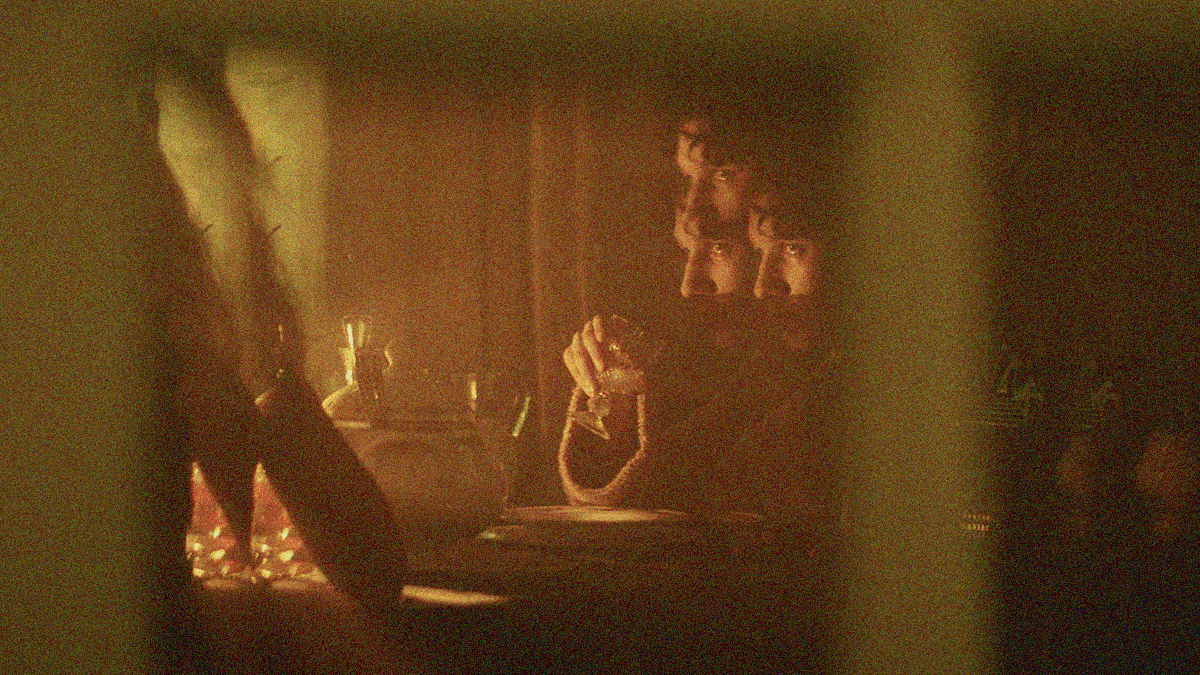
Logo (Dominique Pinon) left his three sons in Athens with a single task: bring their mother back from the dead. Hedgehog's (Panos Papadopoulos) ambition, Japan's (Aris Balis) tech savvy, and Dummy's (Julio Katsis) naive optimism might just get it done too. By tweaking their father's time machine prototype, they've discovered a way to tap into an alternate reality. And logic poses that their ability to send organic material through their retrofitted armoire means they should also be able to bring something else back.
So, when their latest attempt results in the mangled living corpse of a pig they sent to what can only be labeled as Hell, their disgust towards its horror is trumped by the reality that the science worked. Because the readings say it wasn't just cooked and flayed. It actually left their plane of existence. The fact the closet wasn't empty upon opening the doors therefore invigorates their drive to succeed—especially with their father's arbitrary deadline looming. Now's not the moment to stop. It's time to take the training wheels off.
As director Yannis Veslemes and co-writer Dimitris Emmanouilidis zoom out from the mad science, however, She Loved Blossoms More exposes the possibility that what we're watching is nothing more than a drug-addled, hallucinatory trip. If they aren't raiding the alcohol in the cellar, they're partaking in whatever pills Dummy's girlfriend/dealer Samantha (Sandra Abuelghanam) supplies. So, is their progress a shared delusion? Are they really talking to vagina flowers and chasing headless chickens? Is their house just a prison of the mind?
If I'm being honest: I haven't a clue. But I also don't believe having one is the filmmakers' intent. This is a surreal experience that seeks to strip mankind down to its basest emotions. Stubbornness, pragmatism, and innocence banding together to overcome a grief they've been unable to conquer in their own messed up ways (Dummy sleeps with his hands tied to the wheel of the car their mother died in). They avoid the pain, channel their desire into their work, and ultimately risk losing their own sanity in the process.
Don't therefore worry about the time skips or the blurring between real life and dream states. Don't even worry about the bisected face with a bedazzled interior housing a third eye that won't stop spouting nonsense as its body remains in whatever realm they maliciously sent it. Maybe worry about Logo showing up to prematurely hijack Hedgehog's progress since his exploitation of his sons' inebriated states inevitably ratchets up the potential for apocalyptic destruction, but also just enjoy the life-size puppet of Pinon that arrives.
Acid trips meet orgies. Severed limbs meet implausibly synthetic portals maintaining their life. The phone won't stop ringing. Samantha won't stop having sex with the brothers. And Mom (Alexia Kaltsiki) won't stop communicating with them to push their limits and morality so she can be freed from her garden grave. Is that what the boys want to do? Is it what their father is forcing them to do? Could they move on if given the room to face their sorrow with sober heads stripped of a ticking clock towards a deadline that isn't real?
The ending provides a sort of Wizard of Oz awakening wherein what we've seen is an amalgam of sensory input while frying their brains, but how can you believe that if you cannot believe anything else? The weirdness is therefore the point. You either embrace it or reject it. Those hoping for a coherent plot should turn back now. Those partaking in their own substances before sitting down should brace for getting more than they might be able to absorb. Those who saw "Greek comedy/sci-fi/horror" and licked their lips will be in Heaven.
I was left with a sense of respect for the bold insanity if not actual enjoyment. The pacing can crawl and the obtuseness can frustrate, but you must appreciate the actors going all-in and the impressive special effects (the headless chicken and opened head are impossible to forget). But that membrane of style does cause you to question whether any substance exists inside (to borrow a Logo metaphor). The end feels very David Lynch-coded in its Black Lodge and "This is the girl" flair, but mainly via aesthetic. None of it ever gave me the chills.
6/10

This week saw The Cold Light of Day (2012) and No Good Deed (2014) added to the archive (cinematicfbombs.com).
Taraji P. Henson with a double f-bomb in No Good Deed.

Opening Buffalo-area theaters 10/3/25 -
• Anemone at Regal Elmwood, Galleria, Quaker
• Avatar: The Way of Water (Re-release) at AMC Market Arcade; Regal Elmwood, Transit, Galleria, Quaker
"We can accept a barebones revenger because it lets us reacquaint ourselves with Pandora. Cameron is easing us back in with a conflict we don't need to expend too much energy on so we can absorb everything else in the background." – Full thoughts at HHYS.
• Bone Lake at Dipson Capitol; Regal Elmwood, Transit, Galleria, Quaker
• Casper (30th Anniversary) at Regal Transit, Galleria, Quaker
• Checkpoint Zoo at North Park Theatre (select times)
• Good Boy at Dipson Capitol; Regal Elmwood, Transit, Galleria, Quaker
Thoughts are above.
• Idly Kadai at Regal Elmwood
• Kantara: A Legend - Chapter 1 at Regal Elmwood, Transit
• Perfect Blue (Remastered) at North Park Theatre (select times); Regal Quaker
• The Smashing Machine at Dipson Amherst, Flix, Capitol; AMC Maple Ridge, Market Arcade; Regal Elmwood, Transit, Galleria, Quaker
• Sunny Sanskari Ki Tulsi Kumari at Regal Elmwood
• Taylor Swift | The Official Release Party of a Showgirl (weekend only) at Dipson Amherst, Flix, Capitol; AMC Maple Ridge, Market Arcade; Regal Elmwood, Transit, Galleria, Quaker
Streaming from 10/3/25 -
• Bring Her Back (HBO Max) - 10/3
• Honey Don’t (Peacock) - 10/3
• Steve (Netflix) - 10/3
• The Lost Bus (AppleTV+) - 10/3
• V/H/S Halloween (Shudder) - 10/3
• Werewolves (Hulu) - 10/3
• Cloud (Criterion Channel) - 10/7
"The film is therefore pushing the toxicity of the internet to its extreme so that the rantings and ravings of people letting off steam and finding kindred souls to lament their shared victimhood can spill over into the real world." – Full thoughts at HHYS.
• Caramelo (Netflix) - 10/8
• Maintenance Required (Prime) - 10/8
Now on VOD/Digital HD -
• Caught Stealing (9/30)
• Code 3 (9/30)
• Downton Abbey: The Grand Finale (9/30)
• Ick (9/30)
• Jimmy and Stiggs (9/30)
• Looking Through Water (9/30)
• Rabbit Trap (9/30)
• Spinal Tap II: The End Continues (9/30)
• Suspended Time (9/30)
"Appreciation will surely vary since it’s the type of project that gives viewers only as much as they’re willing to put into the experience. Paul’s meditations about the future resonated with me." – Full thoughts at HHYS.
• Tin Soldier (9/30)
• The Toxic Avenger (9/30)
"Blair ultimately delivers more love letter than true standalone with something new to say. The real takeaway is the gore. Honestly, that’s probably all fans wanted anyway." – Full thoughts at HHYS.
• The Wildman of Shaggy Creek (9/30)
• Chaperone (10/3)
• Cognitive (10/3)
• The Partisan (10/3)
• Pet Shop Days (10/3)
• Primitive War (10/3)
• She Loved Blossoms More (10/3)
Thoughts are above.
• Shell (10/3)

Pieces from the 10 Things I Hate About You (1999) press kit.
